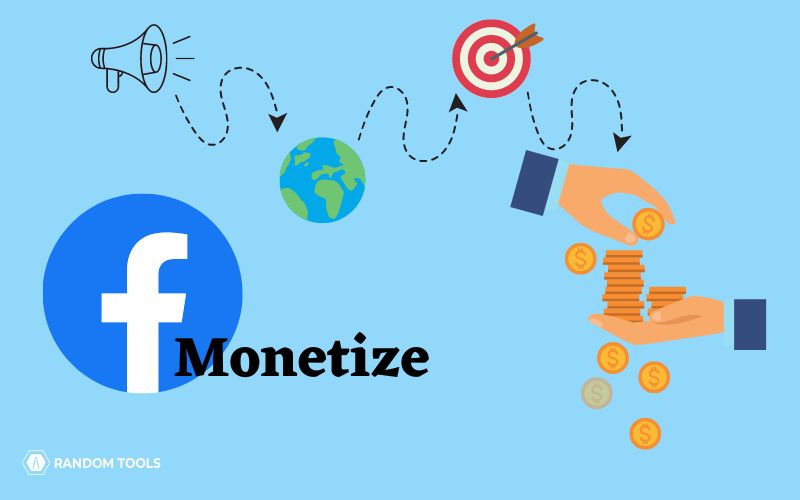Facebook is undoubtedly one of the most influential and widely used social media platforms in the world. With billions of users, it has not only revolutionized communication but also transformed the way businesses advertise and generate revenue. But have you ever wondered how Facebook itself makes money? In this article, we will delve into the intriguing world of Facebook monetization, exploring the various strategies employed by this tech giant to turn its massive user base into a lucrative source of income. From targeted advertisements to sponsored content partnerships, get ready to unravel the secrets behind Facebook’s financial success.
Why is Facebook monetization important?
Facebook monetization is crucial for a variety of reasons. Firstly, it allows Facebook to generate revenue, ensuring the platform’s sustainability and ability to continue offering a wide range of services to its users for free. Without monetization, the company would lack the resources to invest in technical infrastructure and develop new features that enhance user experience.
On top of that, Facebook monetization also benefits content creators and businesses by providing them with opportunities to reach their target audience more effectively. With over 2 billion monthly active users worldwide, Facebook offers an extensive reach unparalleled by any other social media platform. Monetization tools such as sponsored posts, ads, and promoted content enable individuals and companies to boost their visibility and amplify their messages on this massive stage. Moreover, Facebook’s monetization strategies are constantly evolving. The platform regularly introduces new advertising formats and features designed to optimize ad targeting and increase engagement. For example, Facebook recently launched Live Shopping Fridays, which allows businesses to showcase products during live-streamed events while viewers can purchase directly through an integrated feature. Such innovations not only benefit brands but also provide users with a seamless shopping experience within the app.

Advertising on Facebook: How does it work?
Advertising on Facebook has become an essential part of any successful digital marketing strategy. But how exactly does it work? First, advertisers create campaigns through Facebook’s Ads Manager platform. They can choose from a variety of ad formats, including image ads, video ads, carousel ads, and more.
Once the campaign is set up, advertisers then select their target audience based on demographics, interests, behaviors, and even their online activity outside of Facebook. This level of targeting allows for highly personalized and relevant advertising experiences for users. Facebook also offers a range of ad placements across its various platforms such as News Feed, Instagram feed and stories, Messenger, and the Audience Network. This ensures that advertisers have multiple touchpoints to reach their target audience effectively.
One significant factor in Facebook’s advertising success is its robust tracking and measurement capabilities. Advertisers can monitor key metrics such as reach, engagement levels (likes/comments/shares), click-through rates (CTRs), conversions, and more. These insights then empower businesses to optimize their campaigns by adjusting targeting strategies or creative assets.
Sponsored content: What is it and how does it generate revenue?
Sponsored content has become a popular form of advertising in the digital age, and it plays a significant role in generating revenue for platforms like Facebook. So what exactly is sponsored content? It refers to promotional material or articles that are created by brands or advertisers and shared on various online platforms, including social media. Unlike traditional advertisements, sponsored content aims to blend seamlessly with the platform’s regular user-generated content, creating a more authentic and relatable experience.
The revenue generated from sponsored content primarily comes from the brand or advertiser paying the platform for exposure to its user base. Platforms like Facebook provide valuable targeting capabilities that enable advertisers to reach their desired audience more effectively. By partnering with influencers or popular pages on Facebook, brands can gain access to a wider audience and increase engagement with their products or services. Furthermore, sponsored content also creates opportunities for collaborations between brands and content creators. Influencers who have built loyal followers can leverage their credibility and expertise in specific niches by partnering with relevant brands. This mutually beneficial relationship allows influencers to monetize their reach while providing brands with increased visibility among targeted audiences.
Data collection: How does Facebook use user data for monetization?
One of the key factors that drives Facebook’s monetization strategy is its extensive data collection practices. Whenever users interact with the platform, whether by liking a post, commenting on a photo, or sharing an update, they are unknowingly providing valuable data to Facebook. This data includes not only demographic information such as age, gender, and location but also more detailed insights into user preferences and interests.
Facebook then uses this rich pool of user data to create highly targeted advertising opportunities for businesses. By analyzing users’ behavior patterns and interests, Facebook can display ads that are specifically tailored to individual users. For example, if someone frequently searches for fitness-related content or follows fitness influencers on Instagram (which is owned by Facebook), they might start seeing advertisements for workout gear or health supplements in their news feed. Additionally, Facebook also offers advertisers access to its Custom Audiences feature. This enables businesses to upload their customer lists onto the platform so that they can target specific individuals or groups with their ads. By allowing advertisers to retarget users who have previously shown interest in their brand, this feature further maximizes the effectiveness of ad campaigns.
Challenges and controversies surrounding Facebook’s monetization methods.
One of the biggest challenges and controversies surrounding Facebook’s monetization methods is the issue of user privacy. Over the years, Facebook has faced numerous allegations and lawsuits related to its handling of personal data. The Cambridge Analytica scandal in 2018 brought this issue into the spotlight when it was revealed that millions of users’ personal information had been harvested without their consent. This incident raised concerns about how Facebook uses and protects user data for targeted advertising purposes, raising questions about the ethics behind their monetization strategy.
Another contentious aspect of Facebook’s monetization methods is its reliance on algorithms to determine what content users see on their feed. While these algorithms are designed to personalize user experiences and maximize engagement, they have been criticized for contributing to echo chambers and filter bubbles. By showing users content based on their past behavior and interests, these algorithms can inadvertently lead to a narrowing of viewpoints, limiting exposure to opposing ideas or diverse perspectives. This controversy has ignited debates about censorship, freedom of speech, and the role social media platforms should play in shaping public opinion.
Conclusion: The impact and future of Facebook monetization.
In conclusion, the impact of Facebook monetization has been significant and far-reaching. The platform’s ability to connect businesses with a vast audience has revolutionized the advertising industry. With access to detailed user data, advertisers can now target specific demographics and interests more effectively than ever before.
Looking ahead, the future of Facebook monetization appears promising. As the social media giant continues to invest in new technologies such as virtual reality and augmented reality, there will be even greater opportunities for brands to engage with consumers in innovative ways. Additionally, with the recent introduction of Facebook Shops, which allows businesses to set up online stores directly on the platform, Facebook is poised to become an e-commerce powerhouse.
However, it is important for Facebook to remain vigilant about privacy concerns and transparency as it expands its monetization strategies. Recent controversies surrounding data privacy have raised questions about how personal information is being used for targeted advertising. As users become more aware of these issues, they may demand greater control over their data or even seek alternative platforms that prioritize privacy. Ultimately, striking a balance between monetization and user trust will be crucial for Facebook’s long-term success in this field.



Be First to Comment